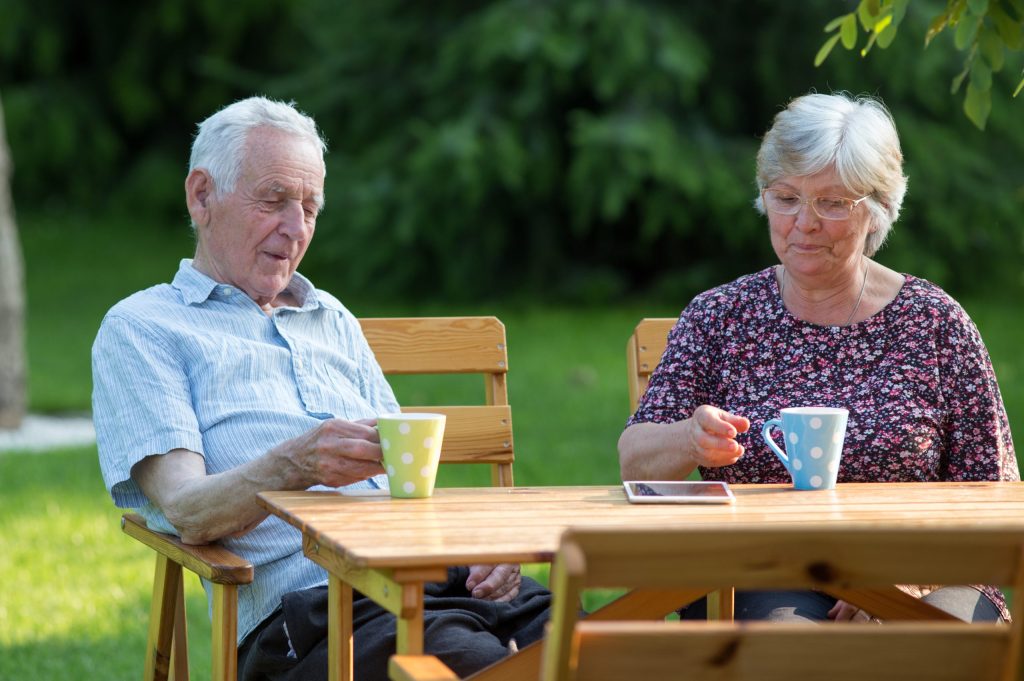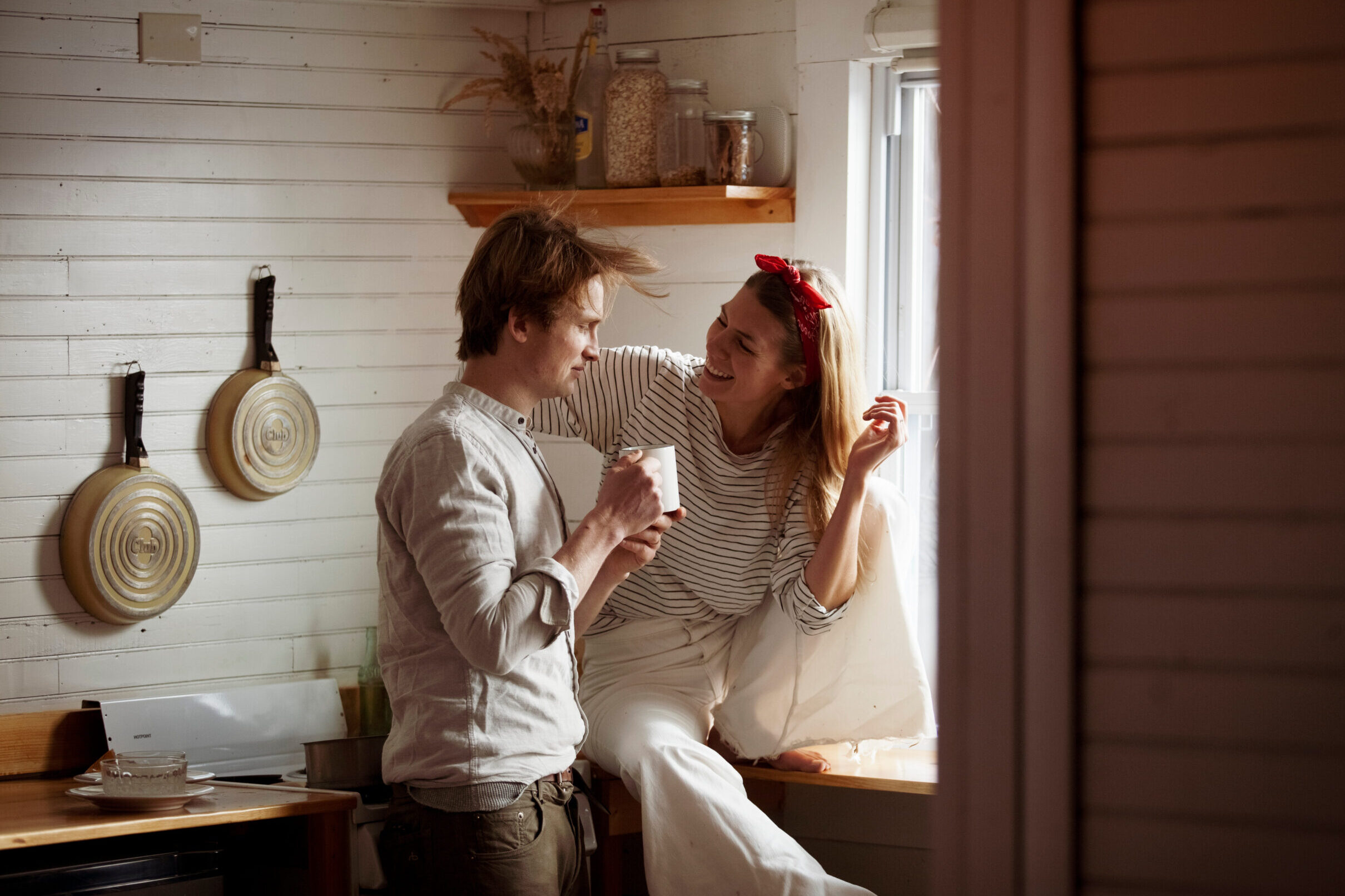Why does being happy – at times – feel like such hard work? Instead of an easy path to a relaxed and consistent glow of contentment, it often feels like pushing a boulder up a hill; a brief moment of satisfaction at the peak before it rolls back down the other side and we start all over again.
Parts 1, 2 and 3 of The Spark’s ‘How to Be Happy’ series considered some scientific, psychological and philosophical perspectives on happiness. In the final part of the series, our focus turns to the metaphorical boulder referred to earlier.
The ‘boulder’ is the common myths that either block our view of the path to happiness or make achieving it a constant, arduous uphill struggle. By dispelling them we hope to offer you a clearer view of the path to lasting happiness.
Myth 1: Finding ‘true’ love will make me happy
A cursory glance at any of the music charts from the last 50 years would give the impression that the way to happiness is to find your ‘true’ love. The myth is that in finding ‘the one’ we will be blissfully happy. Not just happiness for a temporary, passionate romance but one that will last the rest of our lives.
In his book, ‘The Happiness Hypothesis’, Jonathan Haidt dispels this myth. The passion characteristic of the early stages of a romance is very real. Indeed, Haidt points out that the euphoria can be as addictive as heroin or cocaine.
What happens when the passion fades?
However, like a drug, its effects are temporary and eventually wear off. So, what about those relationships that are long-lasting and seem to the external observer to be mutually satisfying?

Haidt argues that these lucky couples experience something quite different from ‘true’ love. In the early days of their relationship, they may well have experienced the seemingly magical effects of romantic love. As this fades, those that become long-lasting are based on what Haidt calls ‘companionate love’: caring for each other and building a life-long, trusting relationship.
It may not be the basis for a catchy pop song but it is a more reliable basis for happiness than the romanticised concept of ‘true’ love.
Myth 2: I will only be really happy when I am free
Ever wondered what it would be like to leave your troubled life behind and move to the other side of the world? Surely, away from the stresses and strains of debt, conflict and obligations, you would be truly happy. You would be truly free to satisfy your every whim and live in perpetual happiness. Lottery tickets are sold in their millions based on this belief.
Over 100 years ago, sociologist, Emile Durkheim, actually found the opposite to be true.
He researched the factors that affect the suicide rate in any given country and made an important discovery. Durkheim found that the stronger social relationships are, the lower the suicide rate.
Relationships make us happy
Ties to family, work and home keep us ‘grounded’ and give structure to our lives. A life without strong ties becomes meaningless. Here at The Spark, we find in our daily counselling of adults, children and couples that Durkheim’s insight is as true today as it was a century ago; relationships make us happy.

There are often stories in the media about the stresses of isolation. You may have seen for yourself the tendency for older people to become unhappy as their contemporaries die around them. For them, it is not only the challenge of spending so much time alone but the feeling of loneliness.
It is possible to feel desperate and lonely even in a busy city when you have no long-term friendships. A feeling of belonging helps us to feel happy.
Myth 3: The pursuit of fame and fortune will make me happy
In the past, only the most brazen would admit to life goals consisting of money and fame. The ‘Instagram generation’ brought up on Big Brother and Love Island, is the first to openly admit that the pursuit of fame and fortune – a drive that exists in most of us – is their chosen path to ‘happiness’.
How many times have we all whispered, internally at least, ‘if only I was world famous then everything would be very different’? We persist in doing the lottery despite never winning, dreaming that the jackpot will change everything. (Of course, it rarely does. Studies dating back as far as the 1970s indicate that lottery winners may experience a temporary increase in happiness levels but this tends to return to previous levels after a short time).
Ask yourself the ‘deathbed question’ and you are less likely to be attracted to money and fame. How many of us are likely to say on our dying day: ‘Oh, I wish I’d worked harder to get that promotion,’ or ‘I should have spent more time in the office and made a name for myself?’ If we are more honest we are more likely to say ‘I wish I’d stayed in touch with my friends.’ Or ‘I should have spent more time with my parents before they passed away.’
Stay connected to be happy
In one of the longest studies of happiness ever conducted it is relationships that seem to have the greatest effect on human happiness. The Harvard Study of Human Happiness has been running for over 80 years and has tracked happiness levels of over 1,500 people.
The findings are conclusive showing that close relationships rather than money or fame are what provides long-term happiness. Once again this chimes perfectly with our own experience providing counselling and support for over 50 years. Difficult and broken relationships are often the root of unhappiness and pain in our lives.
So what do we do now?
Across a variety of studies and a number of experts, there is a consensus that close and long-lasting relationships are the surest route to happiness. So, what do we do if we are unhappy with our lives or despair that we will never find long-term contentment?
On his website, Jonathan Haidt suggests that you do ‘A Relatedness Check-up’. The questions are simple:
- Who are the people in your life you care about?
- Who cares about you?
- Are there at least a few people?
- How often do you see them?
Humans are social beings and valuing relationships is a well-evidenced route to happiness. As Haidt himself says, ‘We were made for love, friendship, and family, and when we spend a lot of time alone or free ourselves from the “constraints” of relationships, it is generally bad for us.’
Counselling and support services
Relationships are the key to happiness in our lives but they can be challenging, tough and painful at times. The Spark has been providing relationship counselling to individuals, couples, families and children for over 50 years. Helping our clients understand what can be done to improve their relationships.
Find out more information about The Spark and our counselling services for individuals, couples and families.
Contact us via our contact form or freephone 0808 802 2088 to talk about how counselling could help you.

